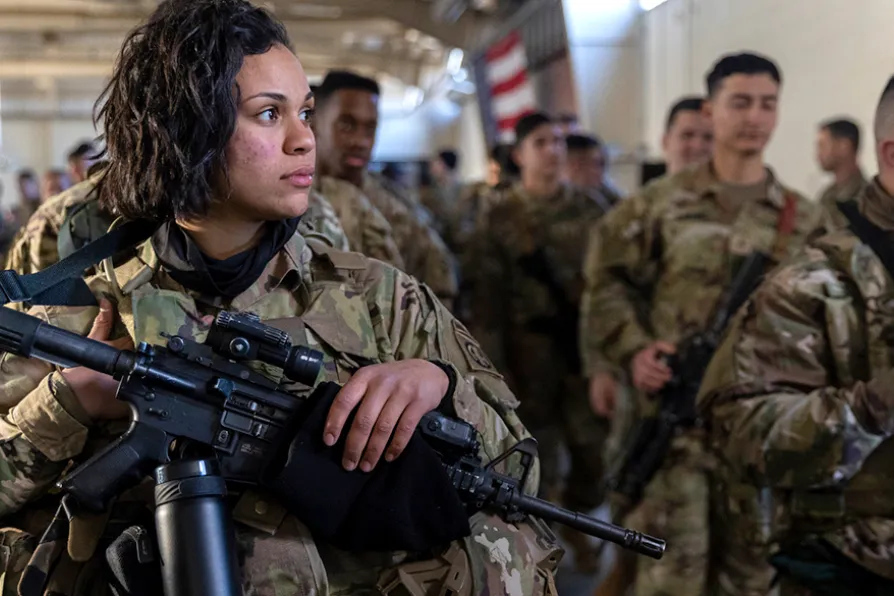CHRISTOPHE DOMEC speaks to CHRIS SMALLS, who helped set up the Amazon Labor Union, on how weak leadership debilitates union activism and dilutes their purpose

 RATCHETING UP TENSIONS: The US 82nd Airborne Division deploys, last Monday, to Poland on a Nato mission. On October 25 1983 it spearheaded a treacherous attack on Grenada and its revolutionary government and on December 20 1989 a similar invasion of Panama
RATCHETING UP TENSIONS: The US 82nd Airborne Division deploys, last Monday, to Poland on a Nato mission. On October 25 1983 it spearheaded a treacherous attack on Grenada and its revolutionary government and on December 20 1989 a similar invasion of Panama
THE current and ongoing crisis with regard to Ukraine reminds us that the existence of Nato 73 years on from its creation stands as an insult to the millions who died in WWII so that the UN Charter could be born.
Produced as the foundational document of the United Nations upon its birth in October 1945, enshrined within the Charter’s articles was the solemn pledge that henceforth justice, international law and tolerance would reign in place of brute power, force and intolerance.
Consider for a moment the first section of the Charter’s preamble:

The colonial mindset behind the governance of the UN is the reason for its inertia when it comes to conflict resolution, argues ROGER McKENZIE – but can China’s Global Governance Initiative point in a new direction of global equality?

Speaking to a CND meeting in Cambridge this week, SIMON BRIGNELL traced how the alliance’s anti-communist machinery broke unions, diverted vital funds from public services, and turned workers into cannon fodder for profit

As Moscow celebrates the 80th anniversary of the Nazi defeat without Western allies in attendance, the EU even sanctions nations choosing to attend, revealing how completely the USSR's sacrifice of 27 million lives has been erased, argues KATE CLARK










